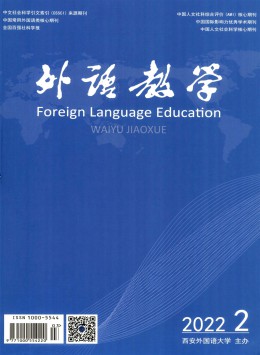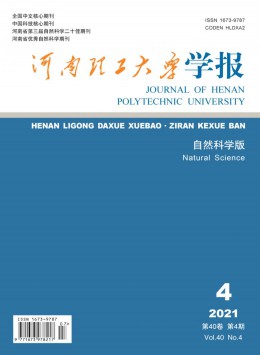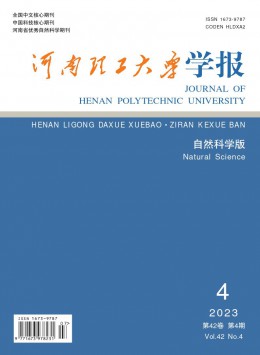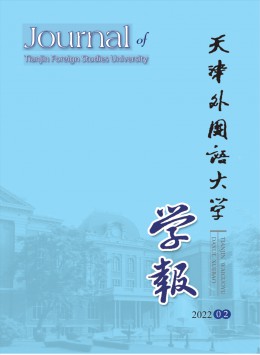常用英語精選(九篇)
前言:一篇好文章的誕生,需要你不斷地搜集資料、整理思路,本站小編為你收集了豐富的常用英語主題范文,僅供參考,歡迎閱讀并收藏。

第1篇:常用英語范文
1、Everyone you meet is afraid of something, loves something, and has lost something.
每個人都會害怕一些事,熱愛一些事物,同時也失去過一些東西。
2、Its not the gay coat that makes the gentleman.
君子在德不在衣。
3、Its never too old to learn.
活到老,學到老。
4、All that glitters is not gold.
閃光的未必都是金子。
5、Practice makes perfect.
熟能生巧。
6、All work and no play makes jack a dull boy.
只工作不玩耍,聰明孩子也變傻。
7、Climb mountains not so the world can see you, but so you can see the world.
爬上山頂并不是為了讓全世界看到你,而是讓你看到整個世界。
8、God helps those who help themselves.
天助自助者。
9、To live is to learn,to learnistobetterlive.
活著為了學習,學習為了更好的活著。
10、Experience is the mother of wisdom.
實踐出真知。
11、An idle youth,a needy age.
少壯不努力,老大徒傷悲。
12、Ill news travels fast.
壞事傳千里。
13、East or west,home is the best.
金窩銀窩不如自家草窩。
14、Do as Romans do in Rome.
入鄉隨俗。
15、Rome was not built in a day.
偉業非一日之功。
16、live not to eat,but eat to live.
活著不是為了吃飯,吃飯為了活著。
17、Facts speak plainer than words.
事實勝于雄辯。
18、Beauty will buy no beef.
漂亮不能當飯吃。
19、Look before you leap.
三思而后行。
20、You learn more from failure than from success; don’t let it stop you. Failure builds character.
你從失敗中學到的要比從成功中學到的多,不要讓失敗阻止你前行的道路。失敗幫助成就性格。
21、Go where you’re celebrated, not where you’re tolerated.
走進贊美你的人群,不要留在只是容忍你的圈子里。
22、Slow and steady wins the race.
穩扎穩打無往而不勝。
23、One false step will make a great difference.
失之毫厘,謬之千里。
24、Where there is a will,there is a way.
有志者事竟成。
25、More hasty,less speed.
欲速則不達。
26、A friend in need is a friend indeed.
患難見真情。
27、Great minds think alike.
英雄所見略同。
28、Call back white and white back.
顛倒黑白。
29、A fall into the pit,a gain in your wit.
吃一塹,長一智。
30、Beauty without virtue is a rose without fragrance.
無德之美猶如沒有香味的玫瑰,徒有其表。
31、People aren’t against you; they are for themselves.
人們并不是針對你,他們只是為了他們自己。
32、The older, the wiser.
姜是老的辣。
33、If you accept your limitations you go beyond them.
了解你自己的局限性,并克服它。
34、Easier said than done.()
說起來容易做起來難。
35、The most dangerous risk of all - The risk of spending your life not doing what you want on the bet you can buy yourself the freedom to do it later.
最危險的冒險就是:你一生把賭注都押在做你不想做的事情上,想著自己以后會有空做自己想做的事。
36、As the tree,so the fruit.
種瓜得瓜,種豆得豆。
37、Action speaks louder than words.
行動勝過語言。
38、Comfort is the enemy of achievement.
安逸是成就的敵人。
39、Like and like make good friends.
趣味相投。
40、The person that you will spend the most time with in your life is yourself, so you better try to make yourself as interesting as possible.
一生中大部分的時間我們都是和自己打交道,所以你要盡量讓自己變得有趣一些。
41、A journey of a thousand miles begins with a single step.
千里之行始于足下。
42、First things first.
凡事有輕重緩急。
第2篇:常用英語范文
1.I’m an office worker. 我是上班族。
2.I work for the government. 我在政府機關做事。
3.I’m happy to meet you. 很高興見到你。
4.I like your sense of humor. 我喜歡你的幽默感。
5.I’m glad to see you again. 很高興再次見到你。
6.I’ll call you. 我會打電話給你。
7.I feel like sleeping/ taking a walk. 我想睡/散步。
8.I want something to eat. 我想吃點東西。
9.I need your help. 我需要你的幫助。
10.I would like to talk to you for a minute. 我想和你談一下。
11.I have a lot of problems. 我有很多問題。
12.I hope our dreams come true. 我希望我們的夢想成真。
13.I’m looking forward to seeing you. 我期望見到你。
14.I’m supposed to go on a diet / get a raise. 我應該節食/漲工資。
15.I heard that you’re getting married. Congratulations.聽說你要結婚了,恭喜!
16.I see what your mean. 我了解你的意思。
17.I can’t do this. 我不能這么做。
18.Let me explain why I was late. 讓我解釋遲到的理由。
19.Let’s have a beer or something. 咱們喝點啤酒什么的。
20.Where is your office? 你們的辦公室在哪?
21.What is your plan? 你的計劃是什么?
22.When is the store closing? 這家店什么時候結束營業?
23.Are you sure you can come by at nine? 你肯定你九點能來嗎?
24.Am I allowed to stay out past 10? 我可以十點過后再回家嗎?
25.The meeting was scheduled for two hours, but it is now over yet. 會議原定了兩個小時,不過現在還沒有結束。
26.Tom’s birthday is this week. 湯姆的生日就在這個星期。
27.Would you care to see it/ sit down for a while? 你要不要看/坐一會呢?
28.Can you cover for me on Friday/help me/ tell me how to get there? 星期五能不能請你替我個班/你能幫我嗎/你能告訴我到那里怎么走嗎?
29.Could you do me a big favor? 能否請你幫我個忙?
30.He is crazy about Crazy English. 他對瘋狂英語很著迷。
31.Can you imagine how much he paid for that car?你能想象他買那車花了多少錢嗎?
32.Can you believe that I bought a TV for $25?
33.Did you know he was having an affair/cheating on his wife? 你知道他有外遇了嗎?/欺騙他的妻子嗎?
34.Did you hear about the new project? 你知道那個新項目嗎?
35.Do you realize that all of these shirts are half off? 你知道這些襯衫都賣半價了嗎?
36.Are you mind if I take tomorrow off? 你介意我明天請假嗎?
37.I enjoy working with you very much. 我很喜歡和你一起工作。
38.Did you know that Stone ended up marrying his secretary? 你知道嗎?斯通最終和他的秘書結婚了。
39.Let’s get together for lunch. 讓我們一起吃頓午餐吧。
40.How did you do on your test? 你這次考試的結果如何?
41.Do you think you can come? 你認為你能來嗎?
42.How was your weekend ? 你周末過得怎么樣?
43.Here is my card. 這是我的名片。
44.He is used to eating out all the time. 他已經習慣在外面吃飯了。
45.I’m getting a new computer for birthday present. 我得到一臺電腦作生日禮物。
46.Have you ever driven a BMW? 你有沒有開過“寶馬”?
47.How about if we go tomorrow instead? 我們改成明天去怎么樣?
48.How do you like Hong Kong? 你喜歡香港嗎?
49.How do you want your steak? 你的牛排要幾分熟?
50.How did the game turn out? 球賽結果如何?
51.How did Mary make all of her money? 瑪麗所有的錢是怎么賺到的?
52.How was your date? 你的約會怎么樣?
53.How are you doing with your new boss? 你跟你的新上司處得如何?
54.How should I tell him the bad news? 我該如何告訴他這個壞消息?
55.How much money did you make? 你賺了多少錢?
第3篇:常用英語范文
1、Never mind.不要緊。
2、Who's calling? 是哪一位?
3、What's up? 有什么事嗎?
4、She has been to school. 她上學去了。
5、A lovely day,isn't it? 好天氣,是嗎?
6、Well,it depends 噢,這得看情況。
7、I'll see to it 我會留意的。
8、He is ill in bed. 他臥病在床。
9、I'm single. 我是單身貴族。
10、Not a sound was heard. 一點聲音也沒有。
11、Does she like ice-cream? 她喜歡吃冰淇淋嗎?
12、I'll check it out. 我去查查看。
13、Take it easy. 別緊張。
14、I felt no regret for it. 對這件事我不覺得后悔。
15、None of your business! 與你無關!
16、Cheer up! 振作起來!
17、It seems all right. 看來這沒問題。
18、I beg your pardon. 請你原諒。
19、I'm in a hurry! 我在趕時間!
20、He won an election. 他在選舉中獲勝。
21、I know all about it. 我知道有關它的一切。
22、You are just in time. 你來得正是時候。
23、How much? 多少錢?
24、Forget it! 休想! (算了!)
25、Move out of my way! 讓開!
26、He is my age. 他和我同歲。
27、Be careful! 注意!
28、This house is my own. 這所房子是我自己的。
29、To be careful! 一定要小心!
30、Bless you! 祝福你!
31、They hurt. (傷口)疼。
32、I owe you for my dinner. 我欠你晚餐的錢。
33、You asked for it! 你自討苦吃!
34、Not bad. 還不錯。
35、First come first served. 先到先得。
36、The answer is zero. 白忙了。
37、He doesn't care about me. 他并不在乎我。
38、That's all! 就這樣!
39、You did right. 你做得對。
40、He is looking for a job. 他正在找工作。
41、Keep it up! 堅持下去!
42、It's against the law. 這是違法的。
43、Which would you prefer? 你要選哪個?
44、Yes,I suppose So. 是的,我也這么認為。
45、He is a smart boy. 他是個小機靈鬼。
46、My car needs washing. 我的車需要洗一洗。
47、Long time no see! 好久不見!
48、Let go! 放手!
49、Clothes make the man. 人要衣裝。
50、I caught the last bus. 我趕上了最后一班車。
51、Count me on 算上我。
52、Speak louder,please. 說話請大聲點兒。
53、It's going too far. 太離譜了。
54、I'm very proud of you. 我為你感到非常驕傲。
55、Be quiet! 安靜點!
56、He suggested a picnic. 他建議搞一次野餐。
57、You set me up! 你出賣我!
58、You need to workout. 你需要去運動鍛煉一下。
59、He was not a bit tired. 他一點也不累。
60、I quit! 我不干了!
61、What does she like? 她喜歡什么?
62、He lacks courage. 他缺乏勇氣。
63、You're welcome. 不客氣。
64、What do you think? 你怎么認為?
65、How's everything? 一切還好吧?
66、How much does it cost? 多少錢?
67、He can't take a joke. 他開不得玩笑。
68、Do me a favor? 幫個忙,好嗎?
69、Don't trust to chance! 不要碰運氣。
70、Congratulations! 祝賀你!
71、He is acting an old man. 他正扮演一個老人。
72、Excuse me,Sir. 先生,對不起。
73、He always talks big. 他總是吹牛。
74、Just read it for me. 就讀給我聽好了。
75、She had a bad cold. 她患了重感冒。
76、So do I. 我也一樣。
77、I'll have to try that. 我得試試這么做。
78、Not yet. 還沒。
79、He was born in New York. 他出生在紐約。
80、I'm home. 我回來了。
81、Just wait and see! 等著瞧!
82、Follow me. 跟我來。
83、Keep in Touch. 保持聯絡。
84、You have my word. 我保證。
85、That's neat. 這很好。
86、Time is up. 時間快到了。
87、I'm lost. 我迷路了。
88、What horrible weather! 這鬼天氣!
89、It sounds great!. 聽起來很不錯。
90、I think so. 我也這么想。
91、What's new? 有什么新鮮事嗎?
92、What's your trouble? 你哪兒不舒服?
93、Don't fall for it! 別上當!
94、I decline! 我拒絕!
95、You did fairly well! 你干得相當不錯1
96、I could hardly speak. 我簡直說不出話來。
97、How's it going? 怎么樣?
98、Watch out! 當心。
99、Fasten your seat belt. 系好你的安全帶。
100、Any day will do. 哪一天都行夕。()
101、The view is great. 景色多么漂亮!
102、That's always the case. 習以為常了。
第4篇:常用英語范文
1) In response to your advertisement in today's newspaper, I wish to apply for the position of senior clerk in your esteemed firm.
(貴方地產公司在今日某某報上刊登廣告招聘高級文員一職,現擬應聘。 )
2) Replying to your advertisement in today's Beijing Youth Daily for an administration assistant, I tender my services.
(拜讀了今天北京青年報上貴公司招聘人才廣告,本人特此應征行政助理一職。)
3) Your advertisement for marketing officer in China Trade News of May 17 has interested me, I wish to tender my services.
(貴公司五月十七日在中國貿易報上刊登招聘市場部辦公室主任的廣告,我讀后極感興趣,特此應聘。)
4) Referring to your advertisement in International Trade News of July 13 for an accountant, I feel I can fill that position.
(貴賓公司七月十三日在國際經貿消息上刊登招聘會計的廣告,我認為能擔任此職。)
5) I wish to apply for the position mentioned in your advertisement in today's newspaper, I hope to offer my services.
(拜讀貴公司今日在XXX報上刊登的廣告,本人特此應聘。)
應聘信的開頭
1. I will graduate from college in July of this year and I have heard that perhaps you might need an accountant with considerable experience working with companies such as yours. I would like to apply for the position.
(我將于今年七月份從大學畢業,據悉貴公司有意招聘一名具有相當經驗的會計,我擬應聘。)
2. Gentlemen: Attention of personnel Manager, I am looking for a position as sales engineer. I think you can help me.
(人事部經理:本人正在謀求一份銷售工程師的工作,希望您能對我有所幫助。)
3. Perhaps there is position in your organization for a young, experienced and conscientious sales representative, I should like to apply for it.
(請問貴公司是否需要一名年輕有經驗且有責任心的營業代表?我有意應聘。)
4. As it is nearing the Spring Festival, it occurs to me that you may need additional assistance in selling gifts in your shop. I think I can assist you.
(春節將至,我想貴公司可能需要人幫助銷售禮物,本人可以幫忙。)
5. Shall you need an experienced cashier for your company in the near future? I wish to apply for the position.
(請問貴公司近期是否需要一名有經驗的出納員?特此應聘。)
敘述個人年齡、經驗
1. I am to graduate this July from Beijing Commercial College, having completed the four-year commercial course. During my summer vacation I was employed in the accounting department of a Chemical Company.
(今年七月本人將從北京商學院畢業,讀完四年的商科課程。在暑假期間,曾受雇于某化學公司財務部。)
2. I am twenty-three years old, and have been employed for the last years by Poly Technologies. INC. Aircraft Support Division, in the general clerical work of the office.
(今年23歲,在過去的四年中一直為保利科技有限公司航空維修部服務,擔任普通文員工作。)
3. I am thirty-six years of age, and have had ten years' experience in my present job, which I am leaving to better myself.
(我今年36歲,在目前的工作崗位已有十年工作經驗,現準備離開此職位,謀求更大發展。)
4. I am just leaving school; and twenty-three years of age. I am anxious to settle down to office work.
(我,23歲,不久即可畢業,希望能盡快安定下來進入某公司做辦公室工作。)
5. I am twenty years old, female and have had one years' experience with a company as an executive secretary.
(本人今年20歲,女性,曾在某公司擔任行政秘書工作一年。)
敘述個人能力
1. I graduated from Tokyo Commercial University, where have completed the four-year course. Besides, I have had two years' training in typewriting and also studied the English Language, including a year of Business English.
(本人畢業于東京商務大學,除完成大學四年應修課程外,還曾接受過兩年的打字訓練并學習過一年的商業英語。)
2. I work as assistant editor on a trade journal in the food field, where my tasks included a great deal of interviewing and personal contact with members of the industry.
(我曾在某貿易雜志擔任食品方面的副編輯,主要工作還包括對工業界人士進行訪問和與他們進行個人接觸。)
3. I am a good accountant and I have a good bookkeeping by double-entry.
(我是一個優秀的會計員,對聯單記帳十分熟練。)
4. I am a graduate of Beijing Foreign Studies University. I won a scholarship and the first prize in speech contest in the University.
(本人畢業于北京外國語大學,在校期間曾獲得獎學金和演講比賽冠軍。)
5. I have received a good education and I have business knowledge and know the sales techniques.
(本人接受過良好的教育,不但具有商業知識,而且熟悉推銷技巧。)
隨函附物
1. Enclosed herewith are two copies of my diplomas and a copy of my resume for your reference.
(茲隨函附寄畢業證書兩份及簡歷表一份,僅供參考。)
2. Enclosed you will find a copy of my resume and my photo. I believe that they may be found satisfactory.
(附上我的簡歷表和照片,希望能令您滿意。 )
3. You will find enclosed an outline of my education and copies of three letters of recommendation.
(隨函寄上本人學歷的簡要概況及三封推薦信。 )
4. Enclosed you will find a letter of recommendation from Mr. Wang, Head Professor of English Department and a copy of my transcript.
(隨函附上英文系系主任王先生的推薦函一封及本人成績單一份。)
5. You can see from the data sheet that is enclosed that I now have an interest in securing a satisfying position.
(您可以從附上的資料表中看出,本人目前有意尋求一份能令人滿意的工作。)
薪金待遇
1. As regards salary, I leave it to you to decide after experience of my capacity.
(至于薪金,請在考驗本人的能力之后再作決定。)
2. The salary I should require would be 20,000 RMB a year.
(希望年薪能達到兩萬元。)
3. The salary required is 800 per month, living in the house.
(希望每月工資八百元,并提供宿舍。)
4. However, the matter of remuneration will take care of itself, as it always does, if other things are all right.
(如果其他條件具備的話,待遇問題自會得到解決。)
5. I am willing to serve on trial for some months at a small salary.
(如能錄用,本人并不介意以低薪工作數月。)
離職原因
1. The only reason why I am leaving the present position is to gain more experience in a trading office.
(本人之所以離開目前的工作崗位,唯一的理由是希望能在一家貿易公司獲得更多的經驗。)
2. My reason for leaving the company is that I wish to get into the advertising business.
(本人離職的原因是希望在廣告業方面有所發展。)
3. I left the office on account of the discontinuance of the business.
(本人離職的原因,系因該公司即將倒閉。)
4. I now wish to enter an office where the work requires greaterindividual responsibility and judgment than here, and where there is more opportunity for advancement.
(目前,本人希望進入一家可以擔負較大責任的公司,并希望能提供升遷機會。)
5. One reason that I would like to be employed with your firm is that you are dealing with import and export trade. I would look forward to dealing with oversea companies and at the same time having a chance to use English more.
(貴公司主要做進出口貿易是本人欲在貴公司工作的原因之一,我渴望能同外國公司做生意,并借機鍛煉英文。)
請求面談及客套語
1. If you care to give me a interview, I shall be pleased to call any afternoon except Monday.
(如蒙給予面試機會,除星期一外每天下午均可應試。)
2. I shall be obliged if you will give me a personal interview at your convenience.
(如能接見,將不勝感激。)
3. If you do not have any vacancies at present for which I might be considered, will you please file my application for future reference? I shall be pleased to supply any additional information you may wish and come to your office for a personal interview at any time that us convenient.
(若貴公司目前尚無適當工作,敬請把我的申請列為未來求才參考。貴公司如需我個人資料,我愿隨時提供,只要方便,我愿隨時來貴公司面試。
4. Should this application meet with your favorable consideration, I will do my utmost to justify the confidence you may repose in me, office for a personal interview at any time that us convenient.
(如貴公司能予考慮此申請,本人將盡最大的忠誠和努力。)
第5篇:常用英語范文
1、 A still tongue makes a wise head.
寡言者智。
2、 Do as Romans do in Rome.
入鄉隨俗。
3、 Call back white and white back.
顛倒黑白。
4、 Time has wings.
光陰去如飛。
5、 Respect yourself, or no one else willrespect you.
要人尊敬,必須自重。
6、 East or west,home is the best.
金窩銀窩不如自家草窩。
7、 Ill news travels fast.
壞事傳千里。
8、 He is not fit to command others thatcannot command himself.
正人須先正己。
9、 To live is to learn,to learnistobetterlive.
活著為了學習,學習為了更好的活著
10、 More hasty,less speed.
欲速則不達。
11、 Rome was not built in a day.
偉業非一日之功。
12、 He knows most who speaks least.
大智若愚。
13、 Slow and steady wins the race.
穩扎穩打無往而不勝。
14、 Do as you would be done by.
己所不欲,勿施于人。
15、 The chief aim of man is not to getmoney.
人的主要目的并不是賺錢。
16、 One false step will make a great difference.
失之毫厘,謬之千里。
17、 A fall into the pit,a gain in your wit.
吃一塹,長一智。
18、 Its not the gay coat that makes the gentleman.
君子在德不在衣。
19、 Time lost cannot be won again.
時光一去不復返。
20、 It is hard to please all.
眾口難調。
21、 Wealth makes worship.
財富能使人拜倒。
22、 The money the miser hoards will do himno good.
守財奴積財,對自己毫無好處。
23、 Lost years are worse than lost dollars.
失去時光金不換。
24、 Please the eye and plague the heart.
貪圖一時快活,必然留下隱禍。
25、 22、God helps those who help themselves.
天助自助者。
26、 A candle lights others and consumesitself.
蠟燭照亮別人,卻毀滅了自己。
27、 He who makes constant complaint getslittle compassion.
經常訴苦,沒人同情。
28、 Action speaks louder than words.
行動勝過語言。
29、 An idle youth,a needy age.
少壯不努力,老大徒傷悲。
30、 Penny wise, pound foolish.
貪小便宜吃大虧。
31、 First things first.
凡事有輕重緩急。
32、 Pride goes before, and shame comesafter.
驕傲使人落后。
33、 well begun,half done.
好的開始等于成功的一半。
34、 Gold will not buy anything.
黃金不能買盡一切。
35、 The older, the wiser.
姜是老的辣。
36、 Facts speak plainer than words.
事實勝于雄辯。
37、 Practice makes perfect.
熟能生巧。
38、 One good turn deserves another.
行善積德。
39、 Time and tide wait for no man.
時不我待。
40、 A friend in need is a friend indeed.
患難見真情。
41、 Like and like make good friends.
趣味相投。
42、 Beauty without virtue is a rose without fragrance.
無德之美猶如沒有香味的玫瑰,徒有其表。
43、 live not to eat,but eat to live.
活著不是為了吃飯,吃飯為了活著。
44、 Its never too old to learn.
活到老,學到老。
45、 What is wealth good for, if it bringsmelancholy?
財富如帶憂郁來,有了財富有何用?
46、 Time is money.
時間就是金錢。
47、 All that glitters is not gold.
閃光的未必都是金子。
48、 Honesty is the best policy.
誠實不欺為上策。
49、 Great minds think alike.
英雄所見略同。
50、 To save time is to lengthen life.
節約時間就是延長生命。
51、 Easier said than done.
說起來容易做起來難。
52、 As the tree,so the fruit.
種瓜得瓜,種豆得豆。
53、 Beauty will buy no beef.
漂亮不能當飯吃。
54、 Patience is the best remedy.
忍耐是良藥。
55、 A journey of a thousand miles begins with a single step.
千里之行始于足下。
56、 Time stays not the fool’s leisure.
時間不等閑逛的傻瓜。
57、 Out of sight,out of mind.
眼不見,心不念。()
58、 Experience is the mother of wisdom.
實踐出真知。
59、 Where there is a will,there is a way.
有志者事竟成。
第6篇:常用英語范文
【關鍵詞】單詞;詞源;分析
單詞是學習英語的基石,充實的詞匯量對學習英語有著無可估量的作用。面對浩如煙海的單詞,很多英語學習者感到無比的頭疼。現代英語中的單詞一般來說都是立意的,都有其來源或出處。如果能從詞源學和歷史文化的角度對這些英語單詞追根溯源,學習者不僅可以記得特別牢,而且往往用得準確。筆者精選了一些常用和有趣的英語單詞,對其淵源加以分析,并輔以適量的例句,希望能對英語學習者在記憶單詞方面有所幫助。
一、blog
乃是weblog之縮略,而weblog則是由web和log復合而成。web的意思是“網絡”,指the world wide web(萬維網);log的原義是“航海日志”,后來被用以泛指任何類型的流水記錄,因此,weblog就是在網絡上的流水記錄形式,相當于網絡時代的日記本。作為weblog的縮略形式,blog可譯為“網絡日志”或“網志”。但有人認為,該名稱雖然中規中矩,但缺乏出新之處,無法概括其獨特內涵和深遠意義,于是想出了“博客”這一中文譯名,也有人將blog譯為“博客日志”或“博客網站”,而將其派生詞blogger譯成“博客”。
二、capital 大寫字母
這個詞來源于拉丁語caput,意思是“頭”。大寫字母,在一詞之“頭”,因此叫capital。另外,一個國家首都,可以說是一個國家的“頭腦所在”,“首”就是“頭”,因此也叫capital。在建筑上,柱冠、柱頂部分也叫capital,因為它位于“頭”部。capital作“資本”講時,也來源于caput,即“頭”與cattle(家畜、牛群)同出一源。在最初的時候,人們的財富,或“資本”,是以他的家畜頭數來計算的,即有多少“頭”。
例:the opposition parties made capital out of the disagreements within the cabinet. 反對黨利用內閣的分歧而撈取資本。
三、clone
約在1903年,植物學家從希臘語中借用了意為“細枝”(twig)的klon一詞,將它英語化為clone,用以表示植物的“無性繁殖系”。現在為簡便起見,漢語往往將它音譯為“克隆”。后來生物學家又發現,動物也可以通過細胞來繁育。到了20世紀末,科學家們經過人工操作,使動物不通過生殖細胞的結合而繁殖后代,1997年英國科學家首次利用成年動物細胞克隆了一只名叫“多利”的綿羊。用無性繁殖的方法復制基因型完全相同的人,即克隆人類,也已完全成為可能。盡管無性繁殖具有遺傳的一致性,然而人類的無性繁殖畢竟是一個充滿倫理和道德爭論的問題。
例:she’s just another blond-haired,red-lipped marilyn monroe clone. 她仿佛是從金發紅唇的瑪麗蓮·夢露克隆出來的。
四、dink
dink是個首字母縮拼詞,由“double/dual income, no kids”(雙收入子女)四個詞的首字母縮合而成。dink源于紐約,始見于1987年,以后也用于英國,指有雙份高收入而尚無子女的夫婦,漢語有時音譯為“丁克族”,一般多以復數形式出現。
例:when a friend referred to two young professionals as “a couple of dinks”, it was a bit surprising. 當一位朋友稱一對白領年輕夫婦為“丁克”的時候,有點讓人吃驚。
五、hacker
這是一個眾人皆知的計算機術語,指非法闖入他人計算機網絡者,即“黑客”。其實漢語“黑客”就是從hacker音譯過來的。這個英文譯音本身清楚不過地告訴人們它是一個貶義詞。
hacker本是個褒義詞,原指對計算機很在行的人,即計算機迷。此后,有些hacker出于不良動機,或為非法獲取信息,或為破壞計算機系統,擅自侵入另一計算機網絡,人們稱之為malicious(惡意的)hacker。隨后前面的形容詞常被略去不用,遂使hacker的詞義發生了由褒而貶的變化。其動詞形式為to hack(into)(非法闖入,擅自侵入)。
例:the hacker used their own software to break into the credit card centre. 黑客使用其軟件侵入信用卡中心。
六、piano 鋼琴
piano一詞是pianoforte的簡寫。據說世界上第一架鋼琴是意大利造琴家bartolomeo christofori于1709年制造的。他認為這種樂器既可奏出輕盈柔和的曲調,又可表達慷慨激昂的內容。因此他用意大利語piano e forte命名了這種樂器,意思是“soft and loud”。后來這個詞又縮合成一個詞:pianofort,英語又把它簡寫為今天的形式。
七、salary
salary一詞是來自意為“鹽”的拉丁語sal。鹽在古代是一種貴重的商品。羅馬士兵們有專門用來買鹽的津貼,拉丁文叫salarium。法語借用該詞,作salarie,14世紀進入英語,以salary的形式出現,而且詞義被擴展了,用以泛指“薪水”。
例:has your salary been paid yet? 你發薪水了嗎?
八、yahoo
大家一定都知道yahoo網站吧,但是極少有人知道yahoo的原意是“鄉巴佬”。yahoo一詞最早出現在1726年。這一年jonathan swift(喬納森·斯威夫特)創作了膾炙人口的《格列佛游記》,yahoo這個詞正是swift在書中杜撰的一種人。在故事里,格列佛航海時遇到海難,被海水帶到一個不知名的島上,那里就生活著yahoo。這些被稱為yahoo的人沒有受過教育,非常愚笨且野蠻。可以看出,yahoo在swift心目中象征著最低等的人。后來,yahoo就被用作“特別不討人喜歡,愚笨的人”的代名詞了。或許是因為它的讀音特別,yahoo流傳廣泛。然而,至于yahoo網站為什么取名yahoo,有許多說法:
yahoo:yet another helpful operation origin
yahoo:yet another hierarchical officious oracle
yahoo:yet another hierarchically organized oracle
第7篇:常用英語范文
as blind as a bat 有眼無珠(像蝙蝠一樣瞎)
as blind as an owl 瞎透了(像貓頭鷹一樣瞎)
as bold as brass 厚顏無恥(像黃銅一樣厚臉皮的)
as busy as a bee 極忙碌(像蜜蜂一樣忙碌)
as clear as a bell 健全的(像鈴鐺一樣健全)
as clear as day 一清二楚的(像白天一樣清楚)
as cool as a cucumber 極為冷靜的(像黃瓜一樣冷靜)
as easy as a pie 極容易(像餡餅一樣容易)
as fussy as a hen with one chick 在小事上瞎操心
as hard as the nether millstone 鐵石心腸(像下層的磨石堅硬)
as hungry as a hunter 非常饑餓(像獵人一樣饑餓)
as lively as a cricket 極活潑(像蟋蟀一樣活潑)
as mad as a wet hen 非常生氣(像弄濕的母雞一樣生氣)
as mild as a dove 非常溫和(像鴿子一樣溫和)
as plain as the nose in your face 一清二楚(像你臉上的鼻子一樣清楚)
as poor as a church mouse 赤貧的(像教堂的老鼠一樣窮)
as proud as a peacock 極驕傲(驕傲得像只孔雀)
as strong as a horse 健壯如牛
as stupid as an owl 極愚蠢(像貓頭鷹一樣愚蠢)
第8篇:常用英語范文
The maximum amount of debt that a state, city or local government is allowed to take on, beyond which voter approval is usually required. 國家,城市或地方政府可承擔債務的最高限額,超過此限額需經投票同意。
debt market [銀] 債券市場
The market for trading debt instruments. 債務工具交易的市場。
debt overhang [分] 債務積壓
A situation where the debt stock of a country exceeds the country's future capacity to repay. 國家的債務超越國家未來償還能力的情況。
debt rating [銀] 債務信用評級
A published ranking, based on detailed financial analysis by a credit bureau, of one's financial history, specifically as it relates to one's ability to meet debt obligations. 關于一方財務歷史特別是其還債能力的歷史的被公布的信用等級,此評級是以信用調查機構的詳細的財務分析為基礎的。
debt ratio [銀] 負債比率
Debt capital divided by total assets. This will tell you how much the company relies on debt to finance assets. 財務比率的一種,指企業的負債總額除以資產總額所得的比率。
debt restructuring [分] 債務重組
A method whereby companies with outstanding debt obligations alter the terms of the debt agreements in order to achieve some advantage. 有未償還債務的企業修改債務協議,以爭取更有利條款的行為
debt retirement [銀] 償清債務
The paying off of a debt. 付清債務。
debt securities [分] 債務證券
IOUs created through loan-type transactions-commercial paper, bank CDs, bills, bonds, and other instruments. 是指為了籌款而發行的證券。例如,債券、匯票、定期存單。
debt security [銀] 債券
A liability or obligation in the form of bonds, loan notes, or mortgages, owed to another person or persons and required to be paid by a specified date (maturity). 以債券、貸款憑證、抵押貸款等表示的債務或義務,并要求將其在某特定日期(到期日)歸還。
debt service [房] 還本付息
The mortgage payment for a given period of time. 某個時期的房屋貸款償付。在一定時期內對債務本息的一系列支付。是指債務人償還到期的本金和利息。
debt service coverage [銀] 債務償還保障
The ratio of cash flow available to pay for debt to the total amount of debt payments to be made. 清償債務可用的現金流量除以債務總額。
debt service coverage ratio [銀] 債務償付比率
A ratio often used by bank loan officers when making loans to perspective income property loans. Net Operating Income/Total Debt Service 銀行貸款人員考慮發出貸款時經常考慮的比率:凈營運收入/還本付息總額。
debt to assets ratio [銀] 資產負債率
Total liabilities divided by total assets. The debt/asset ratio shows the proportion of a company's assets which are financed through debt. 等于所有負債除以所有資產。資產負債率表明了由債務融資的資產在公司中所占比例。
debt to equity [證] 資本負債
A measure of a company's financial leverage calculated by dividing long term debt by shareholders equity. It indicates what proportion of equity and debt the company is using to finance its assets. 是指公司長期負債與股東權益的比率。
debt to equity ratio [證] 資本負債率
A measure of a company's financial leverage calculated by dividing long term debt by shareholders equity. It indicates what proportion of equity and debt the company is using to finance its assets. 測量公司財務杠桿的一種方法,長期債務總額除以股東股本。顯示如果發生清償時,所有人的股東能夠滿足債權人要求權的程度。
debt-equity ratio [分] 負債權益比率
A measure of a company's leverage, calculated by dividing long-term debt by common shareholders' equity, usually using the data from the previous fiscal year.是指以企業負債除以股東權益所得的比率。它是衡量公司財務結構風險程度的一項重要指標。
第9篇:常用英語范文
【關鍵詞】初中英語 教學方法 選擇 應用
英語的普及化,帶來了我國從小學階段開始的系統性英語學習。而初中英語作為小學英語與高中英語教學的銜接階段,起到了承上啟下的關鍵性作用,如何通過初中英語的教學,使學生掌握初中階段必備的英語知識,為今后更高程度的英語學習打下良好基礎,變得尤為重要。初中英語的常用教學方法主要涵蓋了聽、說、讀、寫四個方面,好的教學方法不僅能增強學生學習英語的興趣,也能使得學生的英語水平都以長足的發展,以下是筆者列舉的四種常用的初中英語教學方法。
一、模擬情境法
模擬情境法是以情感陶冶為主的一種教學方法,在各類教學中都常常使用。其需要教師引入或創建一定生動有趣的具體場景,從而引起學生一定的情感共鳴,幫助學生理解單調的教材,在場景中可以要求學生自主進行英語對話練習,也可以在教師的引導下產生目的性較強的英語對話訓練,無論是學生的自主練習,還是師生之間的訓練,模擬情境注重的是對學生興趣及語言應用能力的培養。
這些情境可以是生活場景的再現,也可以是舞臺場景的模擬,比如舞臺劇、話劇、音樂劇的創建等;同時這些情境還可以加入實物演示,音樂陪襯、圖畫描繪等具體情境元素。這些情境場景和元素一方面能引起學生的興趣,另一方面能將英語訓練融入場景中,使得英語學習變得自然、生動、形象。模擬情境是十分重要的語言學習法,因為我們學習語言最終都將應用到各種情境中,語言的靈活運用,也是我們學習一門語言課程的終極目的。模擬情境法的運用將帶來學生的聽說能力的提高,也最終會帶來學生英語運用能力的提高。
二、師生互動法
師生互動法主要包括老師講授教材內容,并針對教材內容提出問題,學生回答問題,進而與學生產生互動。互動過程中,教師要對善于對講授的內容進行詳細剖析與闡釋,并且善于通過問題對學生學習加以積極的引導,從而獲得良性的學習效果。從這兩點來看,師生互動法應當包含了講授法、提問法兩塊。教師既要注重將教學內容教授給學生,又要注重向學生提出引導性的問題,二者缺一不可。
在初中英語教學中,師生互動涉及學習的各個方面,良好的師生互動不僅會建立師生之間的信任關系,還會營造師生之間溫馨的學習氛圍,在今后學生的求知過程中會帶來無限的優化效果。學生對待循循善誘的老師會不自覺的產生敬畏之心,如果教師善于與學生溝通,加大師生間的互動,便會改善學生與老師之間僵硬的關系。師生間的良好關系,將使學生不再畏懼老師,而是善于向教師隨時提出自己的見解或者不懂的問題,教師的耐心講授會使得學生緊跟教師步伐,不斷進步,最終收獲聽、說、讀能力的綜合提升。
三、閱讀指導法
閱讀訓練是初中英語教學中必不可少的一個環節。既是英語考試中的重要部分,也是英語能力的重要體現。因此,針對閱讀的指導教學是不可或缺的。培養優秀的閱讀能力,不單單使得學生的閱讀能力獲得提升,也會影響到學生的寫作能力。一名優秀的初中英語教師不光是授學生以魚,更重要的是授學生以漁。
在閱讀中,教師應一方面指導學生有效練習,另一方面在學生練習結束后對閱讀材料進行詳盡的剖析講解。在閱讀練習中,教師需要做到的是不干擾、不提示,盡可能的讓學生自主地完成閱讀訓練,這樣在閱讀訓練完成以后,可以及時發現學生閱讀中存在的問題――可以是學生閱讀中產生的不良習慣,也可以是學生閱讀中錯誤的閱讀方法,還可以是學生閱讀中有偏差的閱讀理解。在學生練習結束后,教師對學生的閱讀指導是更重要的。發現問題,并解決問題,將使學生在每一次的閱讀訓練后都獲得進步和啟示。這些進步和啟示將使學生的讀寫能力得到提升。
四、實習作業法
實習作業法是課堂之余的一種教學方法。如果說前三種方法主要應用在初中英語教學的課堂之上,那么這種教學方法更重要的是對學生課下學習的一種督促。作業對于每一個學生來說并不陌生,如何才能充分發揮作業的作用,優化實習作業的效果,是我們所有教學者需要考慮的。
實習作業是對課堂上學習知識的綜合運用,既是一種考察,也是一種練習。教師在布置學習作業時需要綜合考慮到當堂課的課程內容,實習作業應該與課堂內容緊密結合,可以是課堂重點內容的重復性訓練,也可以是課堂主要內容擴展性提高。教師要督促學生獨立完成作業,杜絕抄襲同學作業和作業答案的現象,獨立思考。同時,教師還應該讓學生明白實習作業的目的,不產生寫作業的抵觸情緒,在掌握做作業的基本方法后,循序漸進,不斷提高。
在實習作業中,教師可以布置聽力練習、閱讀練習、寫作練習;也可以將作業布置成小組練習,讓小組成員在一起互相督促,互相學習,進行聽說讀的有關訓練。實習作業法是對學生英語綜合學習能力的考察,非常重要,且必不可少,如果妥善加以應用,將會帶來良好的學習效果。
以上這四種學習方法將不能涵蓋所有的初中英語教學方法,筆者寫這篇文章也僅能起到拋磚引玉的作用,希望通過以上四種方法的闡述而收獲初中英語教學研究的長足發展,也期盼帶來初中英語教學中的不斷反思和進步,拉近教師與學生的關系,最終實現教學效果的最優化。
【參考文獻】
[1]李紅. 高中英語分層教學的實證研究[D]. 山東師范大學 2015
[2]崔鑫. 初中英語作業分層實驗研究[D]. 淮北師范大學 2015




